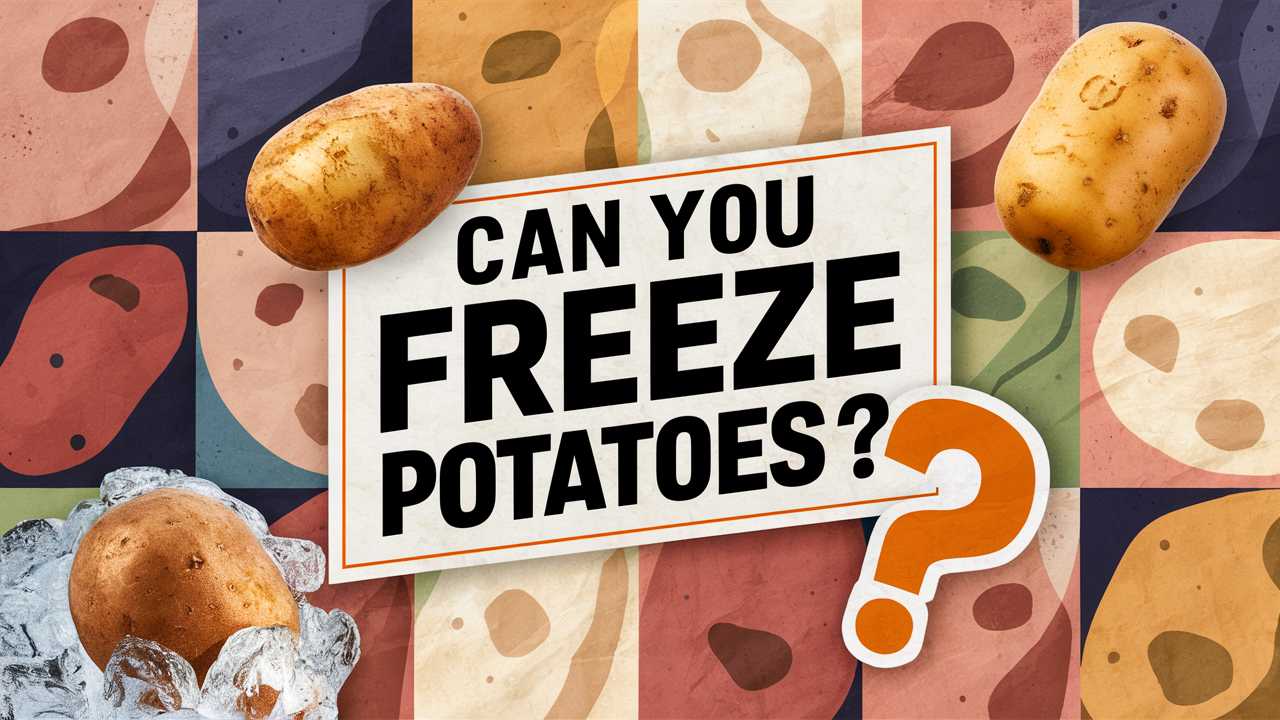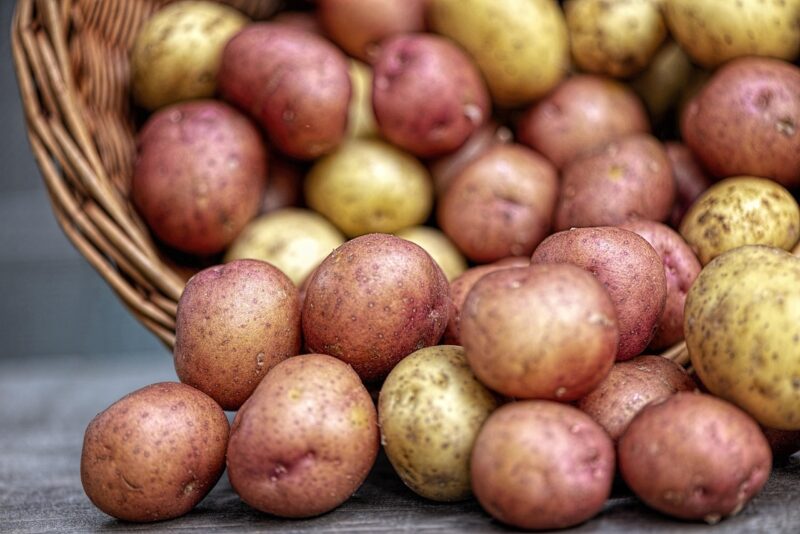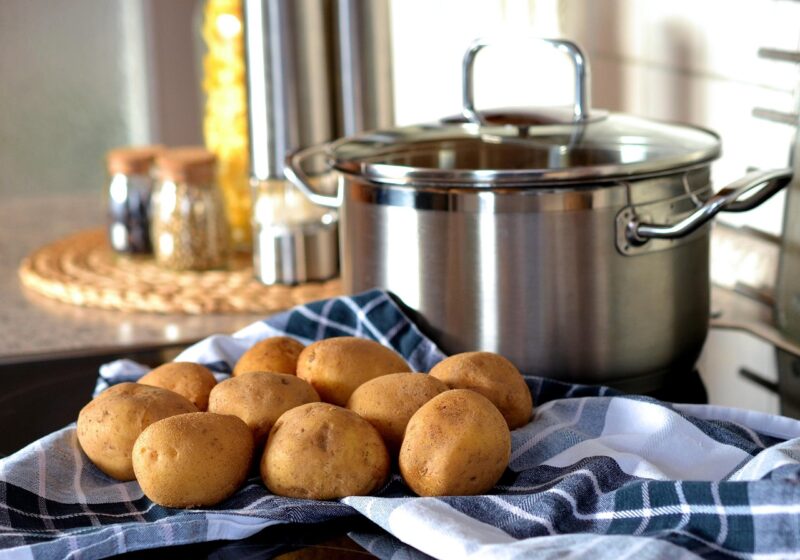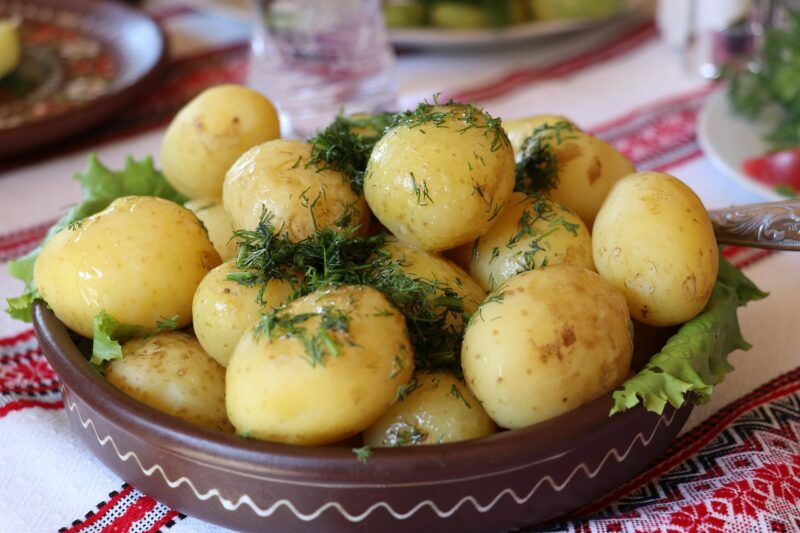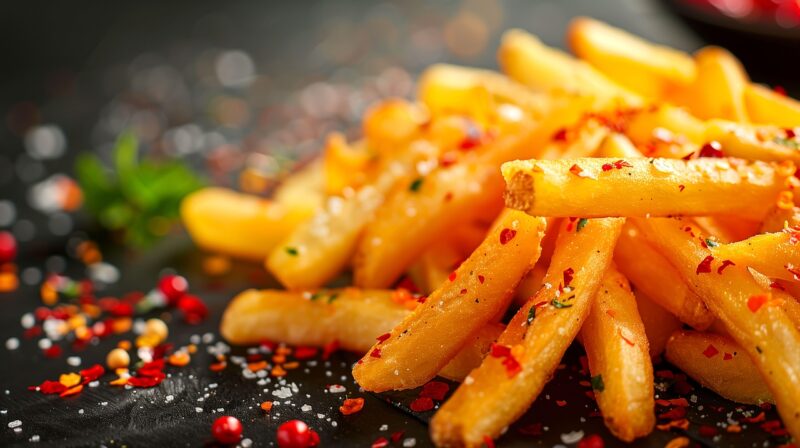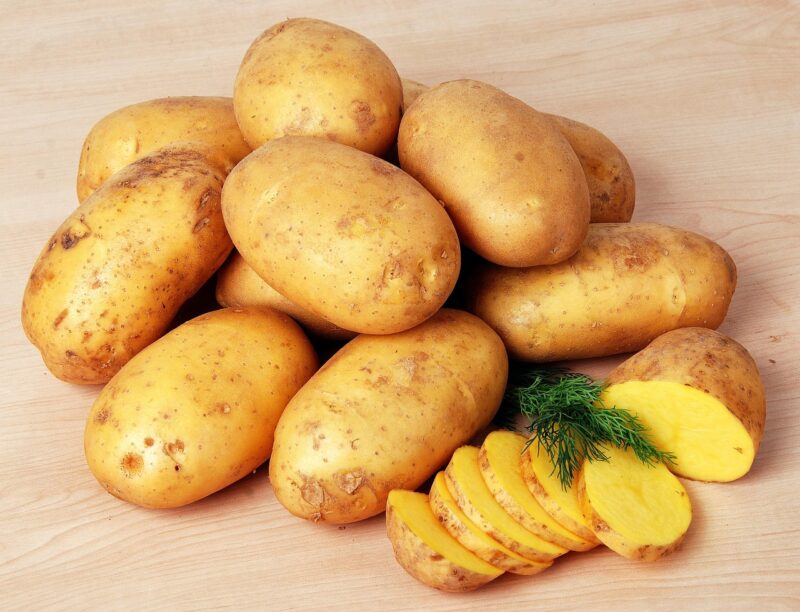Can you freeze potatoes? In this guide, we’ll explore the ins and outs of freezing potatoes, from preparation to storage, benefits, and creative uses for frozen spuds.
Understanding the Basics of Freezing Potatoes
Freezing can be a lifesaver in the kitchen. It allows you to preserve the freshness of food and save it for future meals. However, not all foods freeze well; particularly those with high water content, such as potatoes. When potatoes freeze improperly, they can develop an unappetizing texture and flavor. The key is in how you prepare them before freezing.
Why Consider Freezing Potatoes?
Freezing potatoes can be beneficial for several reasons. Perhaps you’ve harvested a bountiful crop from your garden or scored a great deal at the local market. Freezing allows you to take advantage of these moments without letting any of that deliciousness go to waste. It also saves time during busy weeks when you need quick meal options. Having pre-prepared potatoes can streamline weeknight dinners, making it easier to whip up a tasty meal in no time.
How to Freeze Potatoes: A Step-by-Step Guide
The process of freezing potatoes is not as straightforward as tossing raw spuds into the freezer. Proper preparation is crucial to ensuring they maintain their quality. Here’s how you can do it right:
1. Selection of Potatoes
Not all potatoes are created equal when it comes to freezing. Starchy varieties like Russets and Yukon Gold are better suited for freezing, while waxy types like Red or New potatoes can become mushy upon thawing.
2. Preparing the Potatoes
Start by washing the potatoes thoroughly to remove any dirt. Depending on your preference, you can peel them or leave the skin on for extra nutrients and texture. Then, cut the potatoes into your desired shapes, whether that’s wedges, cubes, or slices.
3. Blanching
Blanching is a critical step that helps preserve the quality of frozen potatoes. Here’s how to do it:
Bring a Large Pot of Water to a Boil: Ensure there’s enough water to fully submerge all your potatoes.
Prepare an Ice Bath: Fill a large bowl with ice and water.
Blanch the Potatoes: Add the cut potatoes to the boiling water for 2-5 minutes, depending on their size. They should be tender but still firm.
Shock in Ice Bath: Immediately transfer the blanched potatoes to the ice bath to stop the cooking process. After a few minutes, drain and allow them to cool completely.
4. Drying
Pat the potatoes dry with a clean kitchen towel or let them air dry on a baking sheet. This step prevents ice crystals from forming, which can negatively impact texture.
5. Freezing
Now, you’re ready to freeze:
Flash Freezing: Spread the cooled, dried potatoes on a baking sheet in a single layer, ensuring they’re not touching each other. Freeze for 1-2 hours until they are solid.
Storage: Transfer the frozen potatoes to freezer bags or airtight containers. Remove as much air as possible to prevent freezer burn. Label with the date for easy reference.
6. Using Frozen Potatoes
To use, simply toss them into your recipe directly from the freezer—no thawing required! They work perfectly in soups, stews, casseroles, and even as roasted or fried potatoes.
Common Misconceptions About Freezing Potatoes
Despite the practicality of freezing potatoes, some myths persist. Here’s a look at common misconceptions that can lead to improper storage and preparation:
Freezing Raw Potatoes is Acceptable
Many believe it’s fine to freeze raw potatoes, but this can lead to an undesirable texture. The enzymes that cause browning and spoilage remain active in raw potatoes, which can result in mushy, unappetizing spuds.
Freezing Will Stop Nutrient Loss
While freezing can preserve many nutrients, it’s not a panacea. Blanching actually helps maintain some vitamins and minerals that can be lost through prolonged storage.
Thawed Potatoes are Exactly Like Fresh
Once frozen and thawed, potatoes will never have the same consistency as fresh potatoes. The freezing process changes their structure, so it’s important to adjust your expectations accordingly.
The Benefits of Freezing Potatoes
The practice of freezing potatoes isn’t just about preservation; there are several advantages that can enhance your culinary experience.
Save Money
Buying in bulk and freezing potatoes can save you money in the long run. When potatoes are in season, they tend to be cheaper. Freezing allows you to stock up and enjoy them later without the expense.
Reduce Waste
Culinary waste is a concern for many of us. Freezing is an effective way to reduce waste generated by purchasing too much fresh produce. By freezing what you can’t use, you can contribute to more sustainable cooking practices.
Convenience of Pre-Cooked Options
Another perk of freezing potatoes is the convenience of having pre-cooked options available. Take advantage of prepping during your meal prep sessions, and you’ll always have something on hand for quick meals or sides.
Creative Ways to Use Frozen Potatoes
Frozen potatoes are incredibly versatile and can be used in a variety of recipes. Below are some creative ideas to inspire your cooking:
Potato Soup
A creamy potato soup is the perfect way to make use of frozen potatoes. Simply sauté some onions and garlic, add your frozen potatoes and broth, and simmer until tender. Blend it smooth for a comforting soup any time of the year.
Home Fries
Frozen diced potatoes can be cooked straight from the freezer. Sauté them in a skillet with a bit of oil, tossing in your favorite seasonings for delicious home fries—perfect for breakfast or a side dish.
Casseroles
Use frozen potatoes in casseroles for a hearty, satisfying meal. Layer them in with your other ingredients, and they’ll cook up perfectly while absorbing all the flavors around them.
Mashed Potatoes
Mashed potatoes made from frozen spuds are not only convenient but can be scrumptious too! After boiling them, mash them with butter and cream for a comforting side dish.
Potential Drawbacks of Freezing Potatoes
While freezing potatoes has many advantages, there are some drawbacks to consider as well:
Texture Changes
The texture of frozen potatoes will never quite match that of fresh potatoes. While this may not be a significant issue for recipes where they are mashed or blended, it may present a challenge for dishes where texture is key, such as potato salads.
Space Considerations
Freezing requires space in your freezer, which can be a limitation for many. If you are already short on freezer space, freezing potatoes might not be a practical option.
Preparation Time
The initial time required to prepare, blanch, and properly freeze potatoes can seem daunting. However, it’s important to remember that this upfront investment can save time and hassle later on.
FAQs About Freezing Potatoes
To further help our readers, let’s address some frequently asked questions surrounding the concept of freezing potatoes.
Can you freeze whole potatoes?
Yes, you can freeze whole potatoes, but they typically need to be blanched first. However, due to potential texture changes after thawing, this practice is less common. It’s advisable to cut them into pieces for more effective freezing.
Are there any types of potatoes that shouldn’t be frozen?
Yes, waxy potatoes like red or fingerling potatoes do not freeze well due to their moisture content and waxy texture. They can become mushy and less enjoyable after thawing.
Can you freeze potato dishes?
Absolutely! Pre-cooked dishes like shepherd’s pie, potato casseroles, and even potato gnocchi can be frozen for later use. Be sure to cool them completely before freezing to ensure the best texture.
How long can you freeze potatoes?
Frozen potatoes are best used within 8 to 12 months for optimal flavor and texture. However, they can technically last even longer, though quality may degrade over time.
Final Thoughts: Embrace the Versatility of Frozen Potatoes
As you can see, the answer to “Can you freeze potatoes?” is a resounding yes—with the right preparation. Incorporating frozen potatoes into your cooking routine opens up numerous possibilities for convenience, creativity, and cost savings. From quick weeknight meals to hearty winter soups, having a stockpile in your freezer can be a game-changer.


